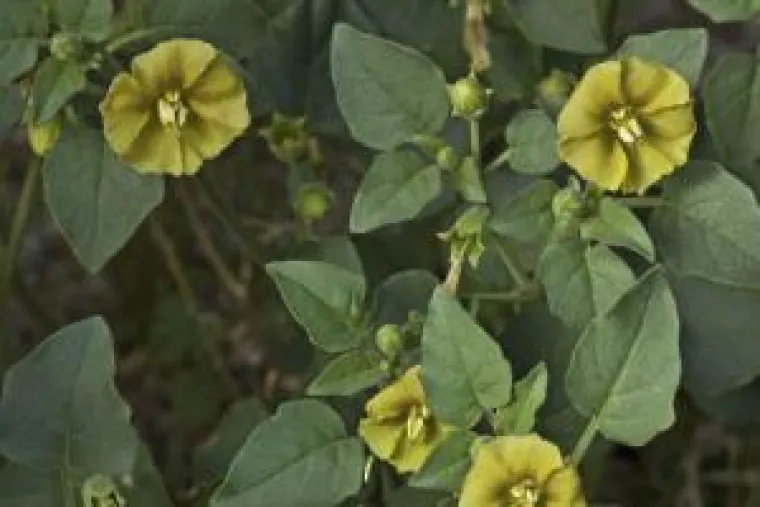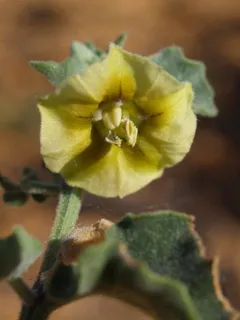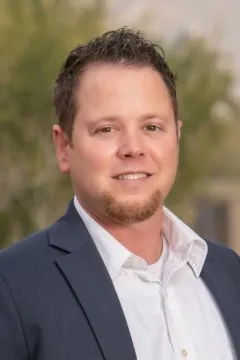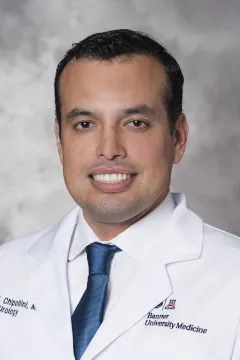Researchers Clear Early Hurdles with Seed Grants
Researchers received seed grants to support early research that may lead to advances in treatments for patients diagnosed with urological disorders such as prostate and bladder cancer.

The process of scientific discovery can take a lot of money. Luckily, it can be broken down into steps, and that first step often is funded with a "seed grant," allowing investigators to gather enough data to pursue larger grants. To support research at every stage, the University of Arizona College of Medicine – Tucson's Department of Urology recently awarded three seed grants to scientists at the first stages of research hoping to see their ideas blossom.
"The department has a commitment to scientific discovery, innovation and investment in multi-disciplinary research in prostate cancer, renal cell carcinoma and bladder cancer," said Benjamin R. Lee, MD, department chair of urology. "With these pilot studies, we hope to obtain preliminary data to support future National Institutes of Health grant submissions."
Recent seed grant recipients agree that funding for early research is crucial.
"These seed grants get a project either off the ground or over the hump to where it can be funded," said Noel Warfel, PhD, assistant professor of cellular and molecular medicine.
'A fishing expedition in our own backyard'
Prostate cancer is fed by hormones called androgens, which antiandrogen drugs can block to slow cancer progression. Unfortunately, many prostate cancers develop resistance to these drugs, at which point they can grow and spread to other parts of the body. Dr. Warfel is hoping to be on the ground floor of discovery for a new class of prostate cancer drugs.
"Finding androgen-independent ways to kill prostate cancer cells is an important goal," he said.

Dr. Warfel hopes a solution to antiandrogen resistance can be found springing from the nearby soil. Physalis crassifolia, or the yellow nightshade ground cherry, is native to Arizona and northern Mexico, sporting bell-shaped yellow flowers and berry-like fruits. He believes a compound found in its leaves might be able to kill prostate cancer cells regardless of their resistance to antiandrogen therapy.
"A compound like this might selectively take out highly aggressive and highly resistant cells, shutting down tumor-driving proteins so the patient can live longer," Dr. Warfel said. "We are trying to identify the tumor's Achilles' heel and go after that target."
Dr. Warfel's investigation arose from a collaboration with Leslie Gunatilaka, PhD, director of the College of Agriculture and Life Sciences' Natural Products Center, which identified yellow nightshade ground cherry as a potential anticancer agent with activity against prostate cancer cells.

"They took over 20,000 extracts from Sonoran Desert plants to find ones that were effective against cancer, but not against normal cells," Dr. Warfel said. "It was a fishing expedition in our own backyard."
Dr. Warfel suspects the compound works by blocking certain genes in cancer cells. With funding from the seed grant, Dr. Warfel will analyze genetic changes induced by the compound to test this hypothesis.
"Before we develop it further, we need to know how it's working," Dr. Warfel said. "This, hopefully, will get us one step closer to a new drug."
'Lumped into one category'
Prostate cancer has an outsized impact on mortality rates of Mexican American men, who are underrepresented in the research on this disease. Ron L. Heimark, PhD, professor of surgery, hopes to contribute to more robust data for this group, which could support investigations into more effective treatments.

"Advanced tumor stage and mortality rates are significantly higher for Mexican American men than non-Hispanic white men. Much of the disparity remains after controlling for factors such as access to care and insurance," Dr. Heimark said. "There are many studies on populations of European men, but we don't know very much about prostate cancer drivers in Hispanic men."
Complicating this research gap is the fact that Hispanic men are such a diverse group that they need to be studied at a more granular level for specific ancestry.
"There's a lot of genetic diversity among Hispanic groups from different countries of origin, but Hispanics have always been lumped into one category. For prostate cancer, that's not a good measure to look at risk and mortality," Dr. Heimark said. "People are just coming to accept that there are differences in prostate cancer in Hispanic men in relation to their country of origin."
Dr. Heimark and his team will use the seed grant to perform preliminary studies using prostate cancer cell samples from the UArizona Cancer Center tissue bank. His team will screen tumor samples to see which genes are at play in cancer progression, and if they are more common among Mexican Americans.
Data like this can inform future diagnostics and more precise treatments for prostate cancer. For example, testing a patient's tumor for genetic clues could shed light on optimal treatment strategies, helping doctors decide which prostate cancer cases need to be treated aggressively, and which are slow-growing enough to be safely monitored without treatment.
'Hard facts vs. anecdotal data'
Juan J. Chipollini, MD, assistant professor of urology, will investigate treatments for nonmuscle invasive bladder cancer, a subset of the disease that hasn't spread into the muscle forming the bladder wall, which he says makes it easier to prevent recurrence.

"For decades, the standard of care has been BCG," Dr. Chipollini said, referring to bacille Calmette-Guerin, a tuberculosis vaccine that is effective against bladder cancer. "Since 2018, there has been a severe shortage of BCG, and I don't see the shortage getting better. Patients are put on wait lists, and it can take many months to get BCG. Sometimes I'm not able to get it at all. This is a crisis."
In response, Dr. Chipollini is hoping to learn if gemcitabine, a chemotherapy drug that is usually used to treat bladder cancer if BCG has failed, can be used as a first-line therapy in the event that BCG is unavailable.
"My goal is to provide data that could lead to larger studies on non-BCG agents for patients with high-grade, high-risk bladder cancer," Dr. Chipollini said. "This project can look into providing safe and effective alternatives to BCG."
Although he and his colleagues at the Cancer Center already use gemcitabine when BCG is unavailable, Dr. Chipollini wants to have better information to share with patients about its effectiveness and side effects.
"My main objective is to confidently provide my patients with some hard facts, some evidence-based recommendations, versus just telling them anecdotal data," Dr. Chipollini said. "Patients deserve to know these numbers."
Dr. Chipollini hopes the preliminary data gathered by his trial, which will enroll about 20 patients, will lead to larger grants and bigger studies with collaborators across the country. A trial with only 20 participants might seem small, but investigations like these help researchers learn how to design larger studies to gather the most helpful data.
"It is a worthwhile endeavor to launch these initial seed grants, and we're excited to see the results," said Dr. Lee, who is also a member of the UArizona Cancer Center. "We seek to advance the frontiers of discovery to differentiate high-risk fatal cancers from slow-growing indolent ones, develop better treatments, biomarkers and ultimately translational research to help our patients. Our hopes for future research in urologic oncology rest on advances in the discipline of urology."
Dr. Warfel’s project, “Defining the mechanism of LG-134, a natural product with potent activity vs prostate cancer,” is a collaboration between the Warfel Lab at the Cancer Center and Dr. Gunatilaka at the Natural Products Center. Dr. Heimark’s project, “The Hispanic Americans Prostate Cancer Comprehensive Genomic Profiling Study (THAPCA-GPS),” is a collaboration with fellow Cancer Center members Dr. Chipollini, Alejandro Recio Boiles, MD, assistant professor of medicine, and Ken Batai, PhD, research assistant professor of urology. Dr. Chipollini’s project is titled “Phase II trial of intravesical gemcitabine in patients with nonmuscle invasive bladder cancer with or without prior Bacillus Calmette-Guérin therapy.” All projects are funded by the Department of Urology Seed Grants and by the George W. Drach, MD, Endowment.

